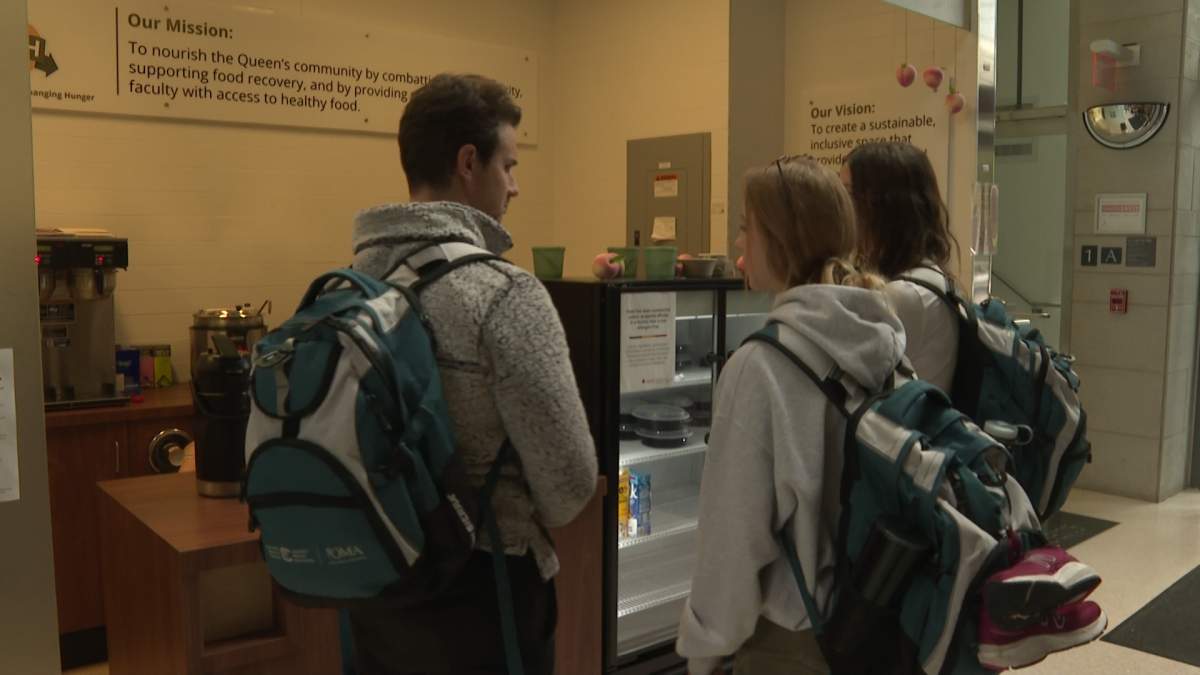Queen’s University has opened a new pay-what-you-can market to help support students who may be struggling with food insecurity.

The initiative opened at the beginning of September and is a collaboration between Student Affairs and the Alma Mater Society following a recent survey.
According to the Queen’s 2021 Student Experiences poll, 13 per cent of students reported going hungry because they didn’t have enough money for food while an additional 24 per cent reported they often worry whether their food would run out before they can afford to buy more.
“Food insecurity is becoming increasingly prevalent. We know that the percentages are high in those who are in post-secondary education,” Theresa Couto, a registered dietitian with Queen’s Hospitality Services, told Global News.
The program reuses meals and soups that have gone untouched from elsewhere on campus and the self-selecting, sliding-scale model works by arranging menu items into recommended tier pricing at $1, $3, $5, or an open rate to allow students to pay whatever they are able.
“We donate on a daily basis to local partners who distribute to shelters,” Couto added.
The market is located in the new medical building on Arch Street and is open Monday, Wednesday and Friday between 11 a.m. and 2 p.m.

Get breaking National news
Tina Hu, a Queen’s University student and vice-president of operations for the Alma Mater Society, told Global News it’s important to destigmatize food insecurity to prioritize student’s health.
“At Queen’s we don’t address how food insecurity can really happen to anyone and any student,” Hu said.









Comments
Want to discuss? Please read our Commenting Policy first.